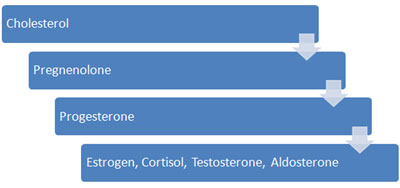7 Testosterone Therapy Myth and Facts – Getting to the Truth

Before making a decision on whether or not testosterone replacement therapy (TRT) is right for you, you need to get to the truth about testosterone therapy myth and facts.
Let us get started right away with 2 common testosterone myths:
- Myth Number 1: Testosterone is just for men
This is not true! Women need testosterone in their bodies just as much as men do, just not in the same amount. Testosterone is crucial for maintaining strong bones, muscle tone, weight management, regulating cholesterol and triglyceride levels, sex drive, and even hair growth.
- Myth Number 2: You will develop bulging muscles if you take testosterone
Again, not true. For people with Low T, testosterone replacement therapy myths such as this often prevent the receipt of crucial treatment. TRT will help improve muscle mass, tone, and strength when low testosterone is present. While it will help creating bulging muscles in bodybuilders and athletes, the use for those purposes is illegal and dangerous.
Knowing the truth about testosterone deficiency myth, facts, and whether or not you can benefit from using this hormone replacement therapy can help you make an educated decision about what is best for your life. HT Medical Center is here to help you come to the right conclusion.
Uncovering the Facts about Testosterone Therapy
As we continue looking into testosterone myth and facts it is time to uncover the 3 most important facts of all:
- Fact Number 1: Low testosterone can lead to other health concerns
This is scary but true. People with low testosterone are more likely to also receive a diagnosis of any of the following medical conditions:
- Heart disease
- Osteoporosis
- Atherosclerosis
- Type 2 diabetes
- Metabolic syndrome
- Dementia
- Obesity
- High blood pressure
- Sleep apnea
- High triglyceride and LDL cholesterol levels
- Anemia
- Fact Number 2: Testosterone is a sex drive booster for everyone
Low T is the reason why most people suffer from low libido. Not only can a decline in testosterone turn off the flames of desire and arousal, but it can also reduce vaginal secretions that make intercourse uncomfortable for women, not to mention interfering with erectile functions and even fertility.
- Fact Number 3: Testosterone replacement therapy is safe to use
People sometimes worry that testosterone is not safe because of all the stories they read about people who use this medication illegally. Yes, increasing testosterone levels higher than their natural state can lead to serious side effects. That is not the case for people who receive TRT as part of their treatment plan for Low T following a comprehensive diagnostic process with a hormone specialist.
Knowing these testosterone therapy myth and facts answers will go a long way in helping you choose wisely to restore balance to critical hormone levels.
Putting an End to Testosterone Therapy Myths
These last 2 testosterone myths and facts will help you determine if testosterone therapy is right for you:
- Myth Number 3: Low testosterone is a natural fact of life and part of the aging process
No one ever said that you had to get Low T. In fact, there are many people walking, running, and engaging in all sorts of exercise and physical activity that may never experience any of the signs and symptoms of low testosterone. Why is that? They are moving, getting enough sleep, reducing stress, and eating right – all things that help maintain higher levels of testosterone naturally. Gaining weight and leading a sedentary lifestyle are the enemies of hormone production. There are ways to maintain a healthy degree of testosterone in the body, even if it includes turning to testosterone therapy for a needed boost.
By the way, although testosterone production does decline with age, you can take steps to lessen the decrease and maintain a healthy body.
- Myth Number 4: Testosterone therapy increases the risk of cancer
Actually, lower levels of testosterone typically mean higher levels of dihydrotestosterone (DHT) and estrogen – two factors that may stimulate breast and prostate cancer. There is no proof that TRT increases the cancer risk, and it may even help reduce the incidence of cancer development. As with any medical treatment, always speak to an experienced doctor before beginning hormone therapy.
For answers to questions about any other testosterone therapy myth and facts, or to arrange for a free consultation or hormone deficiency blood testing, please contact HT Medical Center.

















